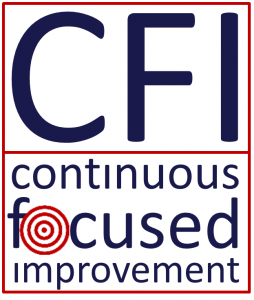Knowledge work
-
Software-development, product-development, design and engineering are examples of knowledge work that take place in a broad range of organisations. What they have in common is a significant tension: Often there are clear instructions regarding a fixed end-date and/or fixed budget, but the precise description of the end-product is unknown. How to manage the uncertainties of knowledge workers in such an environment in order to ensure deliveries in the shortest time frame possible?
Delivering the full scope on time, within initial budget
 The lack of clearly defined requirements at the start of an assignment can cause significant uncertainty in projects where knowledge work plays a central role. This leads to uncertainty about the technology, the magnitude and meaningful testing amongst other things. Waiting until all questions are answered is normally not an option, because the lead-times imposed are quite demanding, and in most cases the delivery date can’t be delayed without significant risks. To adjust the scope is often not an option either as there are minimal requirements which must be adhered to.
The lack of clearly defined requirements at the start of an assignment can cause significant uncertainty in projects where knowledge work plays a central role. This leads to uncertainty about the technology, the magnitude and meaningful testing amongst other things. Waiting until all questions are answered is normally not an option, because the lead-times imposed are quite demanding, and in most cases the delivery date can’t be delayed without significant risks. To adjust the scope is often not an option either as there are minimal requirements which must be adhered to.If the scope were to be limited, this could lead to additional deliveries in the next version of the product being necessary. This then causes more inefficiencies involving the expensive knowledge workers and higher than budgeted development costs.
Managing uncertainty
Despite uncertainties companies need to be reliable, and therefore include a ‘safety-margin’ in task estimates. The bigger the uncertainty and/or risks, the larger the safety margin, which will in turn conflict with the agreed release date. The chance is then significant that the project schedule will be reduced to match the release date and the knowledge workers then feel pressurised to deliver within a seemingly impossible time-frame.
 Safety margins often tend to be wasted at the beginning of a project. Whilst unexpected problems and delays are inherent in knowledge work, the safety margin (or contingency) leads to a lack of urgency at the start of the project activities. As a consequence, too little effort is made to overcome or anticipate inevitable problems and delays.
Safety margins often tend to be wasted at the beginning of a project. Whilst unexpected problems and delays are inherent in knowledge work, the safety margin (or contingency) leads to a lack of urgency at the start of the project activities. As a consequence, too little effort is made to overcome or anticipate inevitable problems and delays.Once the safety margin is wasted, the project manager will try to protect the end-delivery date aggressively and take corrective (often costly) measures to compensate for the delays in each task. The result is a stressful project-environment; project managers fight constantly for additional capacity of shared knowledge workers, and resource managers complain about the inefficient usage thereof. The resource managers are caught between a rock and a hard place as they are unable to decide which project has priority and requires additional capacity, at the same time as juggling their own functional goals with the same shared resources. Knowledge workers are forced into bad multi-tasking, trying to please all project managers by showing some progress on each assigned project, unwittingly delaying further all project deliveries. Frustration grows and commitment withers, pride and team-spirit disappear.
Solution
 We help project organisations to manage the uncertainties ensuring optimal productivity, speed and delivery.
We help project organisations to manage the uncertainties ensuring optimal productivity, speed and delivery.Continuous Focused Improvement offers a proven scientific proprietary process to identify ineffective behaviours and processes. These inadequate performances and practices are eliminated and replaced by desired behaviours and efficient and effective processes that contribute to the organisations’ goals. Knowledge workers will have unambiguous priorities, pride in their work and show commitment. They will be a team once more. In only a few months spectacular results have been proven possible.





